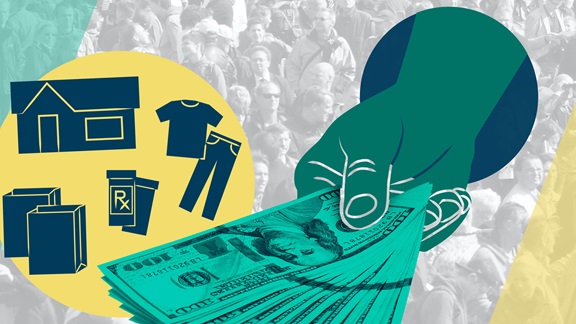Guaranteed Income Plans like Universal Basic Income (UBI) are gaining popularity due to several research showing their potential. The Minneapolis Federal Reserve Bank reported a promising pilot experiment with 500 low-to-moderate-income households.

Guaranteed Income Plans Pilot in Minneapolis (Photo from Marca)
Minneapolis UBI Experiment: Guaranteed Income Plans $500 Monthly Stipend
These homes were randomly assigned to receive a $500 monthly stipend starting in 2023 or be the control group. After 12 months, the money-receiving group had higher food security and lower psychological discomfort than the control group.
This Minneapolis trial joins almost two dozen other local government programs that help struggling households with finances. The Guaranteed Income Plans results continually reveal game-changing potential. Despite these good signs, critics believe Guaranteed Income Plans UBI are too early for a national program.
After a year in the Minneapolis trial, cash-paid households were 48% food-secure, compared to 32% for the control group. The money-receiving group also had lower psychological distress, scoring 21 on the Kessler scale compared to 25 for the control group. These early data suggest that UBI may improve necessities and mental health.
READ ALSO: Property Tax & Rent Rebate Program: Expanded Eligibility Delivers Substantial Tax Cuts For Pennsylvania Seniors
Guaranteed Income Plans: Long-Term Potential of UBI
These tests are promising but don’t prove Guaranteed Income Plans UBI’s long-term sustainability. He suggests trying UBI for five to 10 years to prove its efficacy. This long duration would allow researchers to analyze beneficiaries’ long-term effects, addressing dependency and program viability concerns.
Patience is needed to understand the Guaranteed Income Plans UBI’s effects on society before implementing it. Smith stresses the significance of going beyond short-term studies to assess UBI’s pros and cons fully. This careful approach allows politicians to make evidence-based decisions and ensure that UBI meets long-term social goals.
READ ALSO: Colorado SNAP: Low-Income Households To Receive Payments This February
























